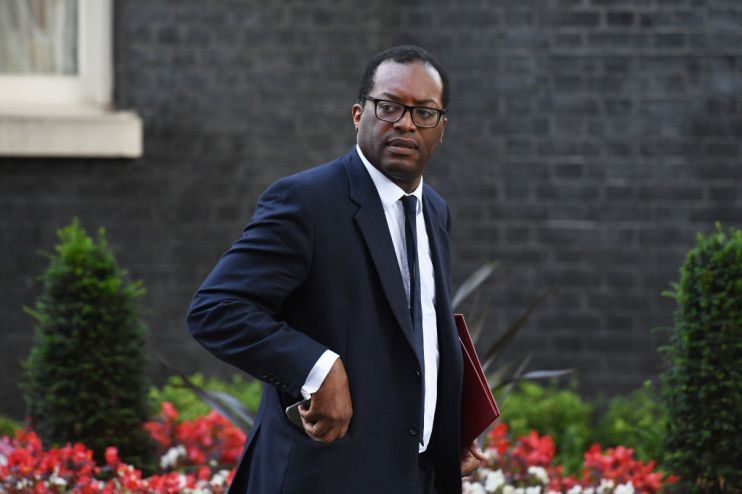Business Secretary says households will have to wait until March for help with soaring energy bills

Business Secretary Kwasi Kwarteng has said households will need to wait until March to find out if a potential cash grant scheme to reduce energy bills will go ahead.
The Express has reported that the Chancellor, Rishi Sunak, is considering making direct payments of up to £500 to struggling families with the consumer price cap set to be hiked by as much 50 per cent this spring.
When questioned about the alleged plans, Kwarteng told ITV that the Government is “trying to work out the best way to deal with what is a really, really serious problem”.
He said: “Lots and lots of things have been discussed, and I’m sure that’s one of the things that we’ve been talking about. My officials in the department speak to Treasury officials, and ministers speak to each other all the time.”
However, he also revealed billpayers will have to wait until the Spring Statement in March to find out what extra support might be available.
The latest media reports suggest the Treasury is mulling over the possibility of one-off payments for millions of low-income households.
The scheme would be comparable to the direct payments former US president Donald Trump sent to Americans during the Covid-19 crisis.
A Treasury source told The Express: “Ministers are looking at ways we can help to support households in the short term – particularly those who need it most. There is no easy or perfect way to do this. A variety of options are being looked at and, as always, we will keep the policies we have in place under review.”
The developments follow gloomy warnings from industry leaders that the consumer price cap could rise twice this year, deepening the cost-of-living crisis.
Emma Pinchbeck, chief executive of Energy UK, the trade body for suppliers, said yesterday that not only could the price cap rise by 50 per cent in April, but that household bills could be increased further to £2,400 per year for average use this October.
Commenting on the issues facing energy suppliers, she explained: “Wholesale prices are three times higher than we expect to see at this time of the year and the situation is enduring.”
Consumers have been largely shielded from market carnage, with dozens of suppliers collapsing since September amid rocketing wholesale costs, while being unable to pass costs on to consumers due to the price cap.
When Bulb Energy entered special administration last November, it revealed the price cap prevented it from charging more than 70p per therm to supply gas to customers, even though it cost them £4 per therm to buy the resources.
Ofgem chief executive Jonathan Brearley has since advised that the price cap will increase this April to reflect the reality of the market.
With households no longer set to be protected from market chaos, Prime Minister Boris Johnson has reportedly held a series of talks with Sunak and Kwarteng about the deepening cost of living crisis.
The Financial Times reported earlier this week that the government has been weighing up the idea of restructuring the market so that public money could be loaned to suppliers during market shocks, but recouped when wholesale prices are lower.
This would allow energy firms to spread costs to households over time.
However, it would depend on prices eventually falling and current price increases not being baked in to the market over an extended period of time.
Sunak has also considered expanding the Warm Home Discount scheme which provides a £140 saving to 2.2m of the UK’s poorest households.
Meanwhile, 20 Tory MPs and peers including five former ministers published a joint letter in The Daily Telegraph calling on Downing Street cut VAT on bills and ditch green levies to shave £200 off household bills.
But the Chancellor wants any further government spending to target the poorest households in need of support, rather than a wider saving that would also benefit the wealthy.
Consequently, the Treasury is now understood to be considering a one-off payment to people on low incomes.
Earlier this week, plans for government intervention faced pushback from free market think tanks, such as the Institute of Economic Affairs (IEA).
IEA’s energy analyst Andy Mayer told City A.M. the current spike in energy prices is “rooted in the government’s interventions in the energy market” with the price cap preventing suppliers from passing costs on to consumers.
Rather than imposing new mechanisms, he suggested the UK should secure its own energy supplies through investment in North Sea oil sites and onshore fracking.